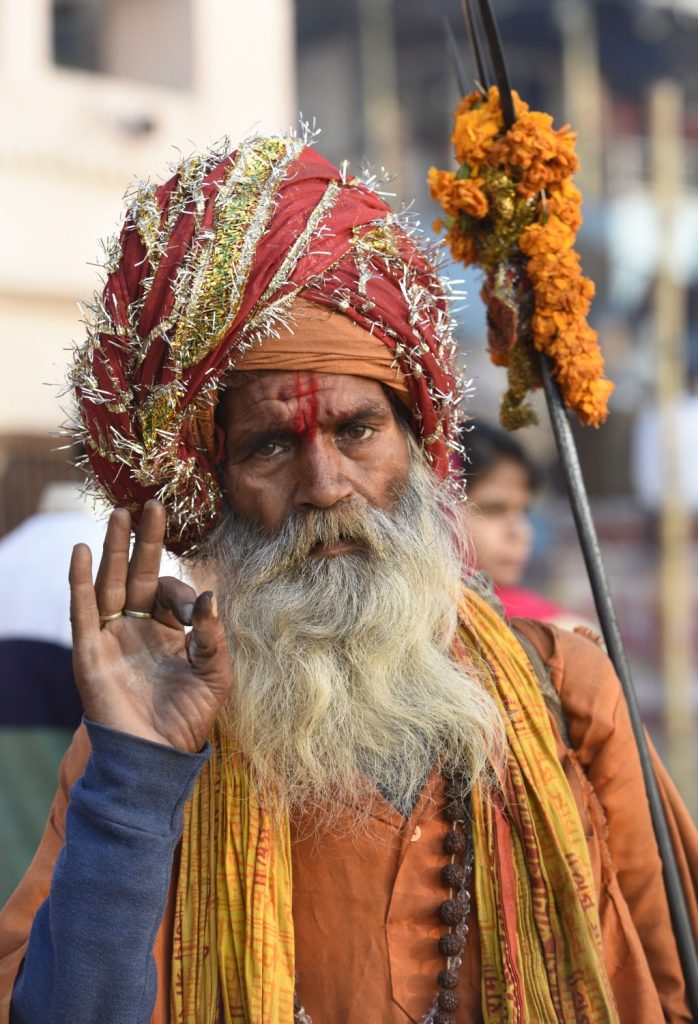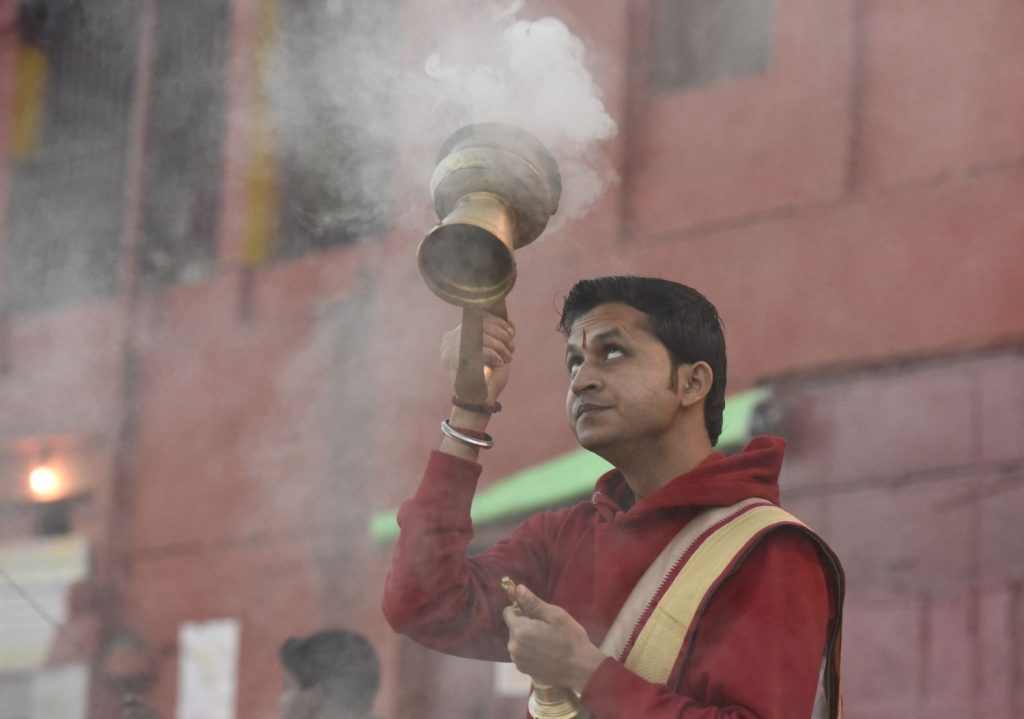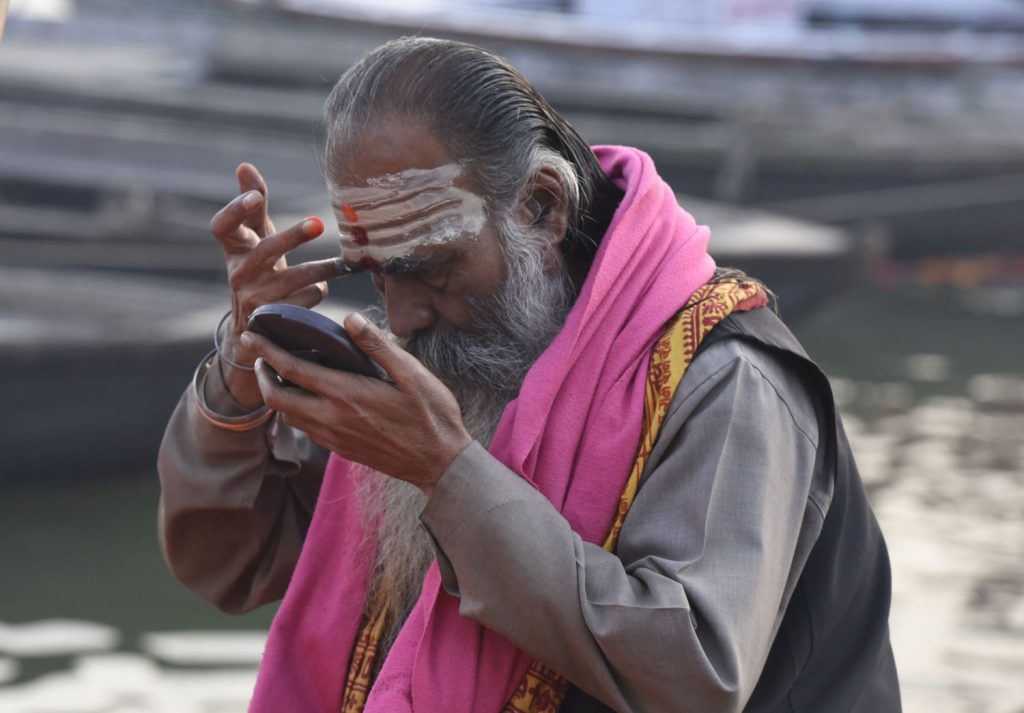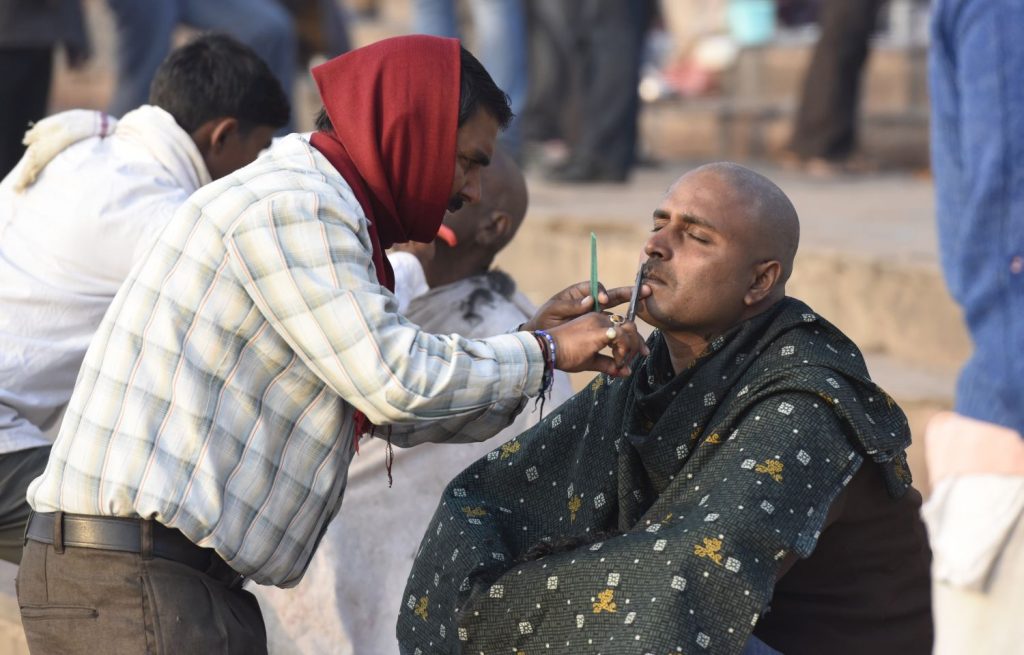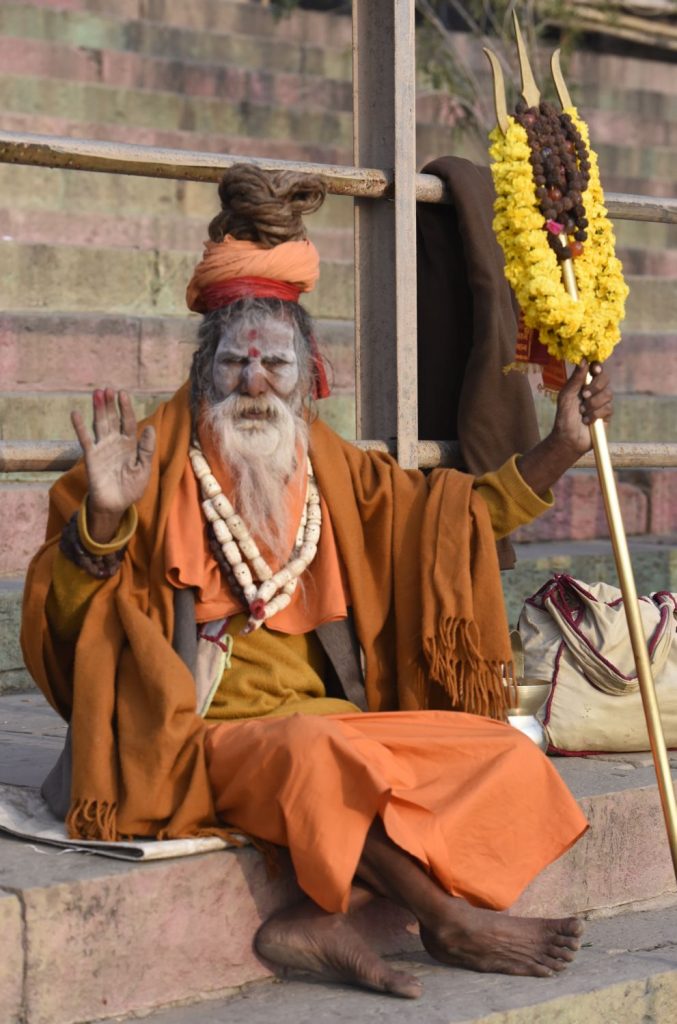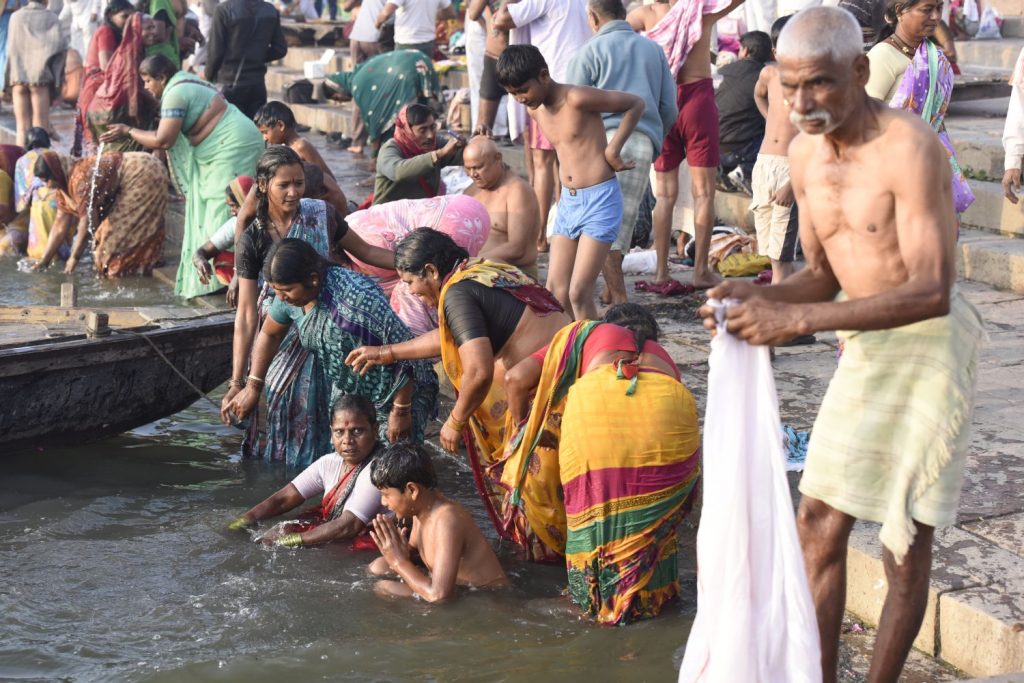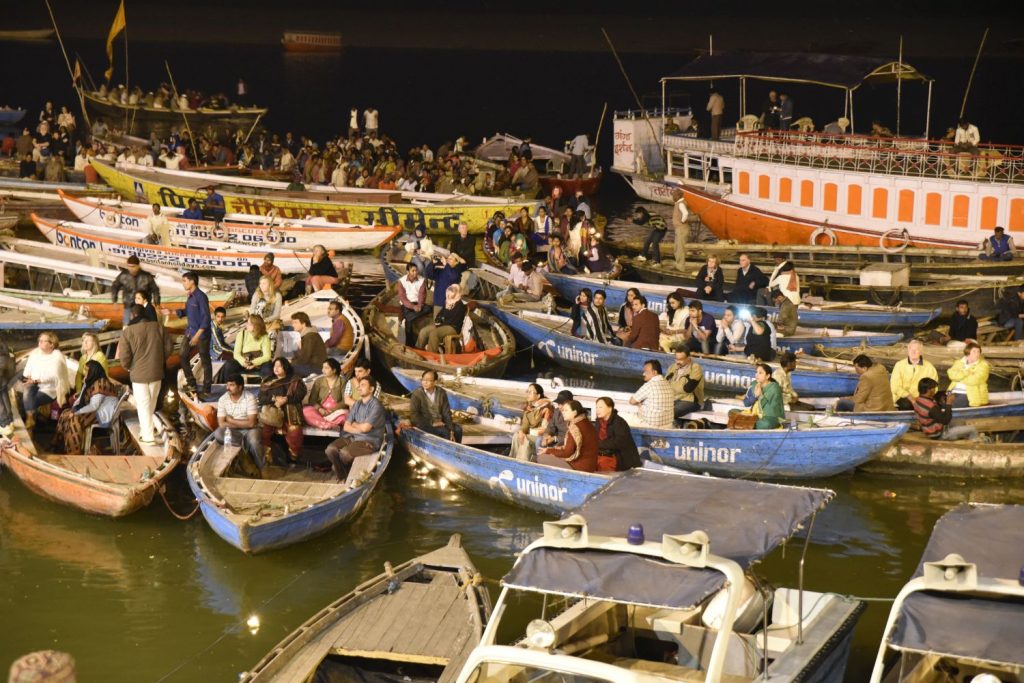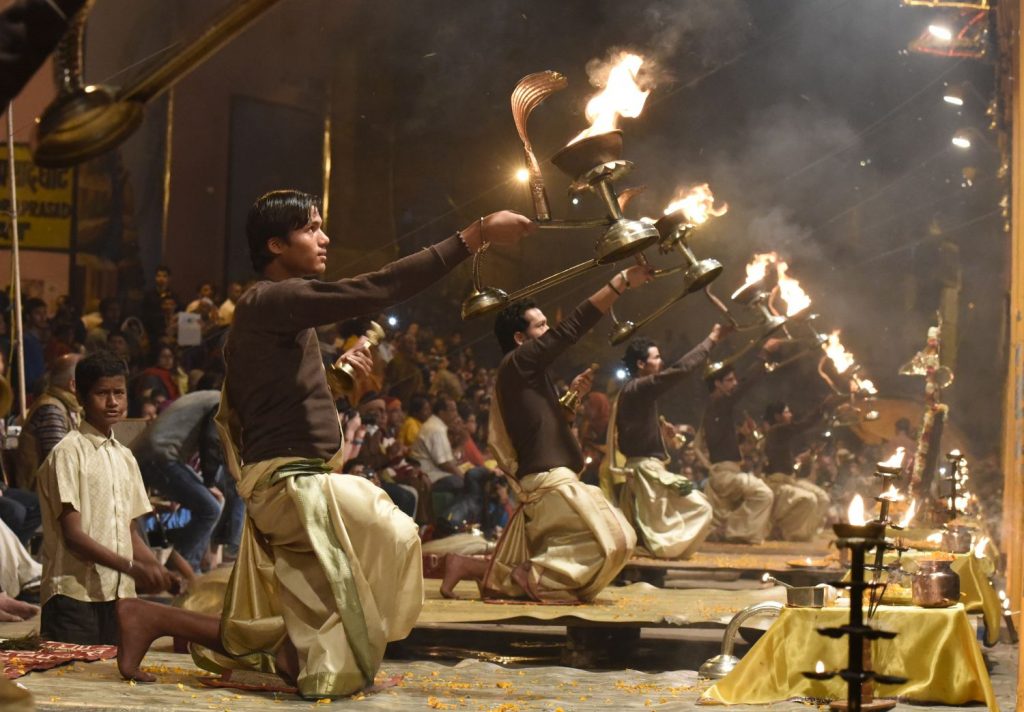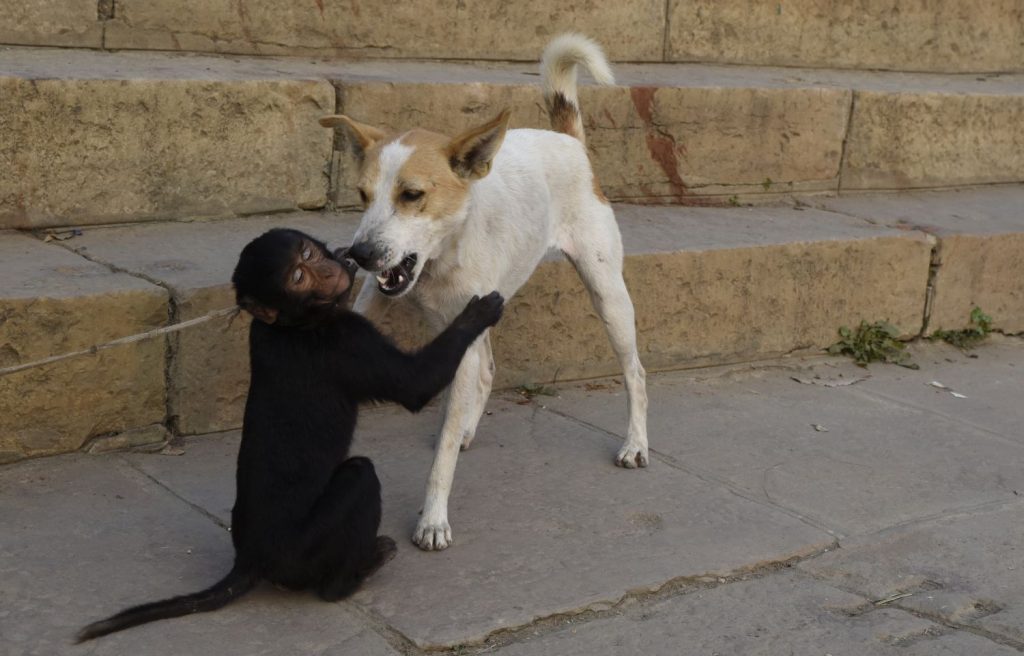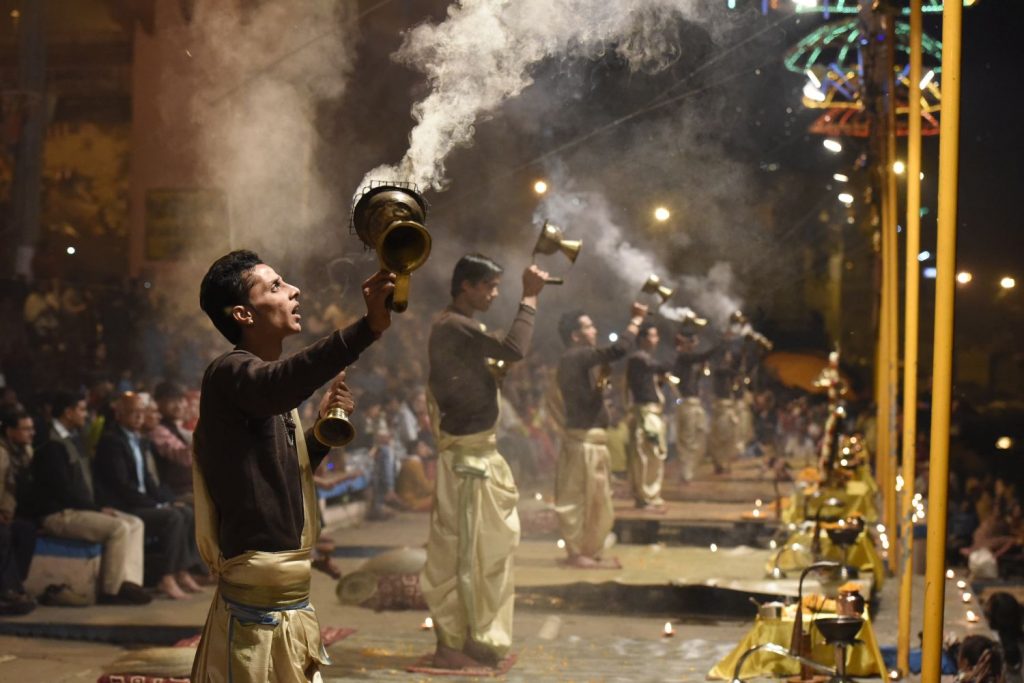
Very little can prepare the Western visitor for the holy city of Varanasi on the Ganges River. For many it is overwhelming.
People come to Varanasi to die and be cremated on the banks of the Ganges, their ashes placed into the river. People come to bathe in the polluted waters that Hindus believe to be sacred and pure.
The traffic in the city’s narrow streets is unbelievable. Auto rickshaws can’t get through to the area close to the ghats where only foot traffic, bicycles and the ever-present infernal motorcycles can make it.
Only the ghats themselves, stairs to the river, offer some relief from the traffic, but here the visitor is constantly accosted with offers of boat trips, requests for money, offers of blessing (for a fee of course). You are never left alone.
But the city is an incredible mix of sights, sounds, colours and smells. The sweet smell of burning incense, the smell of cremated flesh, the stench of stale urine. The narrow winding streets are lined with colourful shops selling silk and cotton fabrics, yoghurt, holy books and anything else. Alcohol and meat, however, are hard to find in this Hindu holy city.
Along the river, especially at dawn and dusk, people bathe in the water or set little boats of flowers and a flame in a leaf afloat on the river. Priests chant and perform rituals with fire, river water and duster-like implements as a constant clang of bells rings in the background.
Many of the people by the river are poor and old, begging to support themselves as they wait to die. At the lowest of the low are the packs of thin and mangy dogs with protruding ribs that forage the rubbish piles. Cows too wander the streets and the ghats, also scrounging what they can. At least they are sacred. Monkeys leap from trees to tops of buildings, chasing each other, or stealing food.
I was supposed to take a late afternoon train from Allahabad to Varanasi on Thursday arriving in the early evening. When I got to the station, I found the train was either six or nine hours late, depending on whether you believe the notice board or my Cleartrip app. Either way, I wouldn’t arrive until around midnight, even though it was just a trip of about 150 km.
I opted instead to take a bus, which runs regularly and is about a three-hour trip. I dislike buses at the best of times, but this was worse. I had to sit with my luggage on top of me for much of the journey on the beaten-up old bus as passengers crammed in. I have certainly been on more crowded buses, but the condition of the roads was bone rattling. I was exhausted when I arrived, still not recovered from my illness.
As mentioned, the auto rickshaws can’t take you right to the ghats. My hotel at Meer Ghat involved a one kilometre walk carrying my luggage while I was constantly accosted and followed by touts trying to get me to a hotel that would give them a commission.
When at last I arrived, I was dazed and didn’t notice that the front desk man didn’t return my passport to me after photocopying it. Only the next day when I went to buy a train ticket did I discover my passport was missing. I panicked, picturing having to divert to New Delhi and go through embassy red tape to get temporary papers. Fortunately, when I returned to the hotel, the front desk still had my passport.
I now have a confirmed second class sleeper train ticket to Bhopal tomorrow, the best I could get. My previously booked ticket in a higher class was wait listed so there was no guarantee I would get a birth.
Until then, there is a lot more to see and experience in this amazing, but challenging city of Varanasi.
